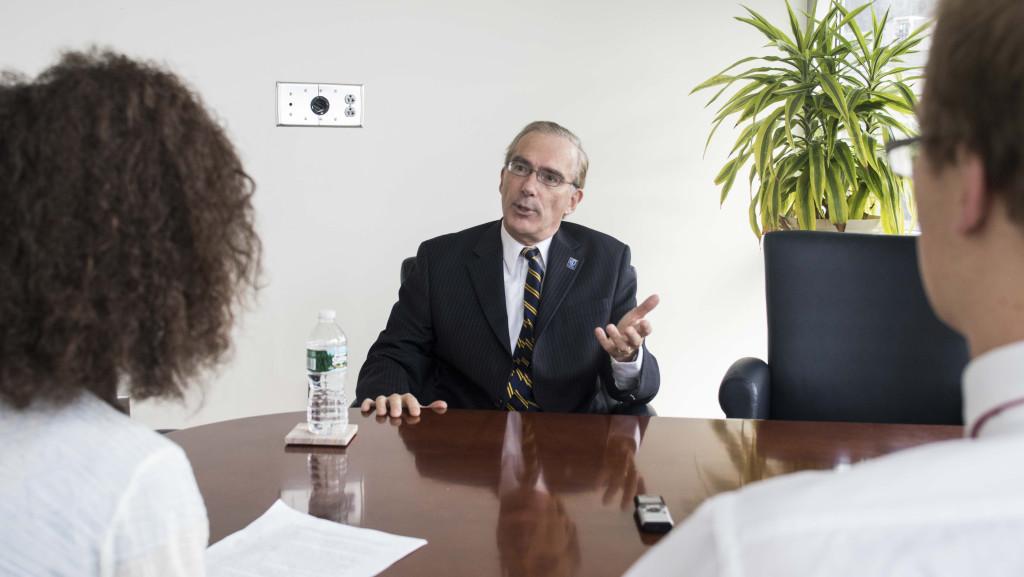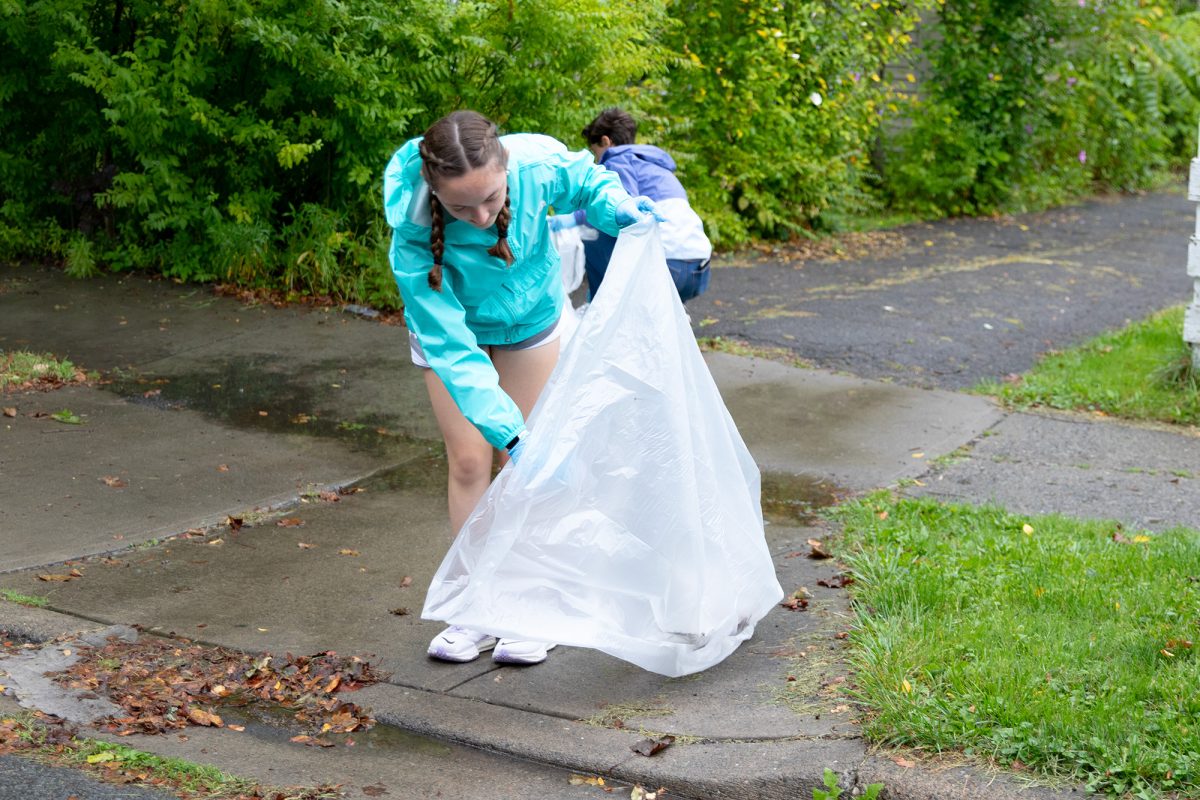Ithaca College President Tom Rochon discussed his outlook on the current campus climate and said he is not considering resignation, during an interview with The Ithacan.
During an interview Nov. 12, Rochon said he was dedicated to addressing racism and bias on campus while also recognizing the criticisms that had been put forth concerning his response to the issues.
At a protest Nov. 11, the student group POC at IC said it would not engage with Rochon or work with him on his diversity initiatives. This came after a semester of racially charged incidents, including resident assistants protesting against Public Safety officers, racially insensitive comments made by J. Christopher Burch ’76 and Bob Kur ’70 at the Blue Sky Reimagining Kick-Off event and a racially charged party theme from unaffiliated fraternity Alpha Epsilon Pi.
“Right now, I am giving no consideration to resigning,” Rochon said. “I am completely focused on doing what I consider to being a very important job at a crucial moment in Ithaca College history.”
In light of upcoming no confidence votes in his leadership by faculty and students, Rochon said he is “not regarding this as an electoral campaign” period of time, instead saying he is planning on continuing to work hard to address the issues.
Rochon said he believes the current protests have sprung from national racial conversations and instances on campus. He said he also attributes it to a culture gap that has grown as the number of African, Latino, Asian and Native American students has risen at a much higher rate, while the number of ALANA faculty and staff has risen more slowly. Since Fall 2005, the number of ALANA students on campus has more than doubled from 9.2 to 18.8 percent, while the percentage of ALANA faculty and staff at the college has risen from 7.7 to 10.6 percent.
“That creates an increasing disconnect between the student body and their expectations and their needs and the faculty and staff,” he said. “It’s a disconnect that could be bridged if we had been, over the last years, more attentive to the cultural changes we need in order to be fully inclusive if we had been doing some of the things we are now starting to do.”
Rochon said he is continuing to work on the diversity initiatives he laid out during an Oct. 27 meeting, which will be overseen by Roger Richardson, the new interim chief diversity officer. Rochon said Richardson has been working behind the scenes in his current job as associate provost for diversity, inclusion and engagement but will be more in the forefront as chief diversity officer. Richardson will continue to hold his associate provost position while in this new role.
Richardson will provide weekly updates to the campus community on the progress of the initiatives.
Rochon said he had been looking for “a number of years” for an angle into addressing racial issues on campus but said he is not convinced diversity initiatives would have been able to “get the traction they are getting now” in the past.
“I have been thinking about this as an important campus issue, but … as a leader, you take on the things you believe you can mobilize others to make a difference on,” he said.
Rochon said although there are many community members on campus contributing to making the steps effective, he wishes POC at IC would engage with him.
“My personal preference would be that we move forward with their insight,” he said. “I deeply empathize with and agree with the statement, ‘It is not their problem to solve.’ I don’t feel that engaging and offering insight is the same as saying, ‘Help me solve this problem or identify the solution.’”
When asked about his biggest accomplishments and failures during his tenure as president, Rochon said the development of the Integrative Core Curriculum has been his biggest accomplishment. Rochon said his biggest failures were the failed attempt to implement a mascot and the delay in releasing the 2012 campus-climate survey.
Rochon defended the difference in responses between the racial remarks made at the Blue Sky kickoff and the response to the planned AEPi party by saying the AEPi response was faster because it was aimed to stop the party from occurring.
Watch the full interview:
[acf field=”code1″]








